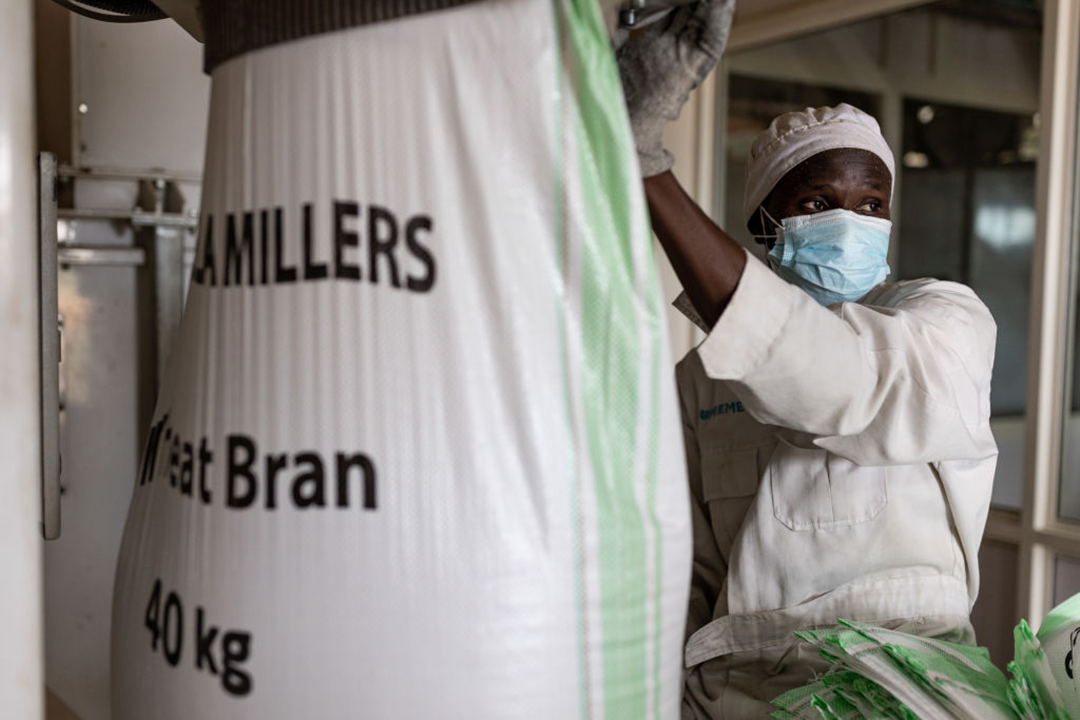Experts Urge Domestic Capacity to Offset Food Shortages Caused by Russian Invasion of Ukraine
ADF STAFF
Africa agriculture experts are calling for countries across the continent to increase their capacity for local food production to avoid future food shocks like the one created by Russia’s invasion of Ukraine.
The invasion that began in February shut down exports of grain, fertilizer and other key agricultural components from both countries, which are two of the world’s leading exporters of foodstuffs. As a result, prices for bread and other staples spiked across Africa, setting off a nutritional crisis in some countries.
Africa does $4.5 billion in business with Ukraine, the great majority of that in grain imports. The same is true for $4 billion in trade with Russia. Those imports include fertilizers, which also are rising sharply in price, further straining farmers’ ability to produce food.
More than a dozen African countries rely on Russia or Ukraine for some or all of their wheat imports. Levels vary from 10% in Zambia (from Ukraine) to 100% in Eritrea (evenly split between Ukraine and Russia), according to the Food and Agricultural Organization of the United Nations.
For many Africa countries, the sudden loss of grain imports highlights how dependent they are on foreign countries for sustenance — and how vulnerable that makes their populations.
“The direct and indirect impact of the crisis on Africa’s agriculture deserves a closer look, not only on how it negatively impacts the sector but also considering emerging opportunities to rethink African agricultural investment going into the future,” Dr. Canisius Kanangire, executive director of the Nairobi-based African Agricultural Technology Foundation, told a recent virtual forum.
Kanangire spoke about how the Russia-Ukraine conflict has weakened food security in countries highly dependent on wheat and fertilizer from the Black Sea region.
At the same forum, Kabir Ibrahim, former national president of the All-Farmers Association of Nigeria, said the ongoing food shock serves as a lesson in how African agriculture must change if the continent is to reduce its vulnerability to outside events. He called for the development of an efficient African food system.
“All countries in Africa must commit to sizable investments in agriculture to bolster their food systems to avert further stresses and challenges of food and physical insecurity pervading the continent,” Ibrahim told the forum.
African nations reliant on Black Sea grain got some relief recently when a United Nations-brokered agreement allowed Ukraine and Russia to restart exports of grain and fertilizer to Africa and elsewhere.
In Cameroon, Célestin Tawamba, head of the country’s largest flour and pasta producer, breathed a sigh of relief.
“The noose was tightening, so the deal should help us breathe,” Tawamba told The New York Times newspaper.
While the deal offers short-term relief from Africa’s food insecurity, Dr. Ousmane Badiane, founder of Akademiya2063, a think tank in Rwanda, called for African nations to take a deeper look at how they can predict and prepare for future shocks to their systems.
“Even if we were to double Africa’s agricultural production today, the shocks in the global market would be transmitted to our local markets,” Badiane told the virtual forum.
Hoping to establish a new agricultural model for the future, the African Development Bank (AfDB) recently announced the start of a project aimed at helping African farmers produce an extra 30 million metric tons of wheat, rice and soybeans as a hedge against the kind of shock the continent now faces.
“If we don’t manage this very quickly, it will actually destabilize the continent,” AfDB President Akinwumi Adesina told Al-Jazeera earlier this year.
On July 27, the AfDB joined government leaders in Sinématiali in northern Côte d’Ivoire to lay the cornerstone for a new agro-industrial hub designed to expand opportunities for local farmers and increase the country’s production of rice, maize, cashews and animal products.
“This project is a huge initiative that is part of our ambition towards developing a new kind of agriculture in Côte d’Ivoire,” Prime Minister Patrick Achi said during the ceremony. “Developing agriculture in Côte d’Ivoire is about increasing our people’s well-being on a daily basis.”


Comments are closed.